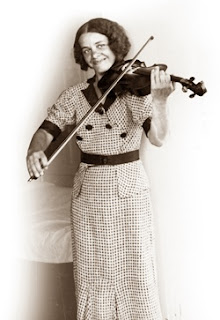 |
| Quarr Abbey. Just for boys! |
Here it is Seraphic Singles Saturday, but I can't think of a Singles topic I haven't written on before. Eeek! Remember how I said married women swiftly forget what being Single is like? Six and half years in, this is happening to me. Mostly I remember what a struggle it could be to see men as themselves and not as Potential Spouse/Not Potential Spouse. But I also recall a frequent sense of unease.
What is my vocation? What is my vocation? What is my vocation? What is my vocation?
Catholic education could combat these things--although maybe it did combat the first thing, and I was too wrapped up in my little world to notice. If I had been told in elementary school religion class to imagine how God saw my classmates, would understanding have illuminated my little brain?
I don't know. I don't think it would have been a good assignment to have me write a letter as if I were God to a certain A.P., whoever because instead of radiating divine love, I would have written something like "Dear A, If you don't stop pulling Seraphic's braids, which hurts her a lot, by the way, you will end up in HELL if you die, and you won't like that AT ALL."
(I can imagine how the Grown-ups saw A., of course. "Oh, he is just a ch-eye-ulllllld!")
Anyway, I think it is a good exercise to try to see people around as God might see them; naturally to do this, one needs to fathom God's personality, which is best done by reading the Gospels and what the saints say about the Gospels. I am quite sure Our Lord did not want A to pull my braids, but on the other hand, Our Lord would have known about A's messed-up home life, if he had one.
The solution to hating little boys (if you are a little girl) and being silly about random men (if you are a woman) is to take an objective view, which begins with a meditation on what God, who knows everything, knows about Man X, and how He feels about him. What does God probably like? What does God probably dislike? What would it be
like to be Man X?
Probably there is a lot along these lines in the writings of John Paul II; I should really get around to reading more of them. I wish he had written a
Dignitatem Virorem, don't you?
As for the vocation worry, I plunk this right down at Catholic Education's door. "What is my Vocation" turned up in Grade 13, which was almost too late to begin thinking about religious vocations anyway.
Education about marriage (real marriage, not the wedding), religious life and priesthood should begin in childhood--
which is when children begin thinking about such things anyway. When I was in kindergarten, playing "House" was very popular, with the alpha female playing Mother. Interestingly, girls never wanted to play "Wedding." Nope, their interest was in being in charge of the kitchen and bossing children around.
As for the priesthood, one of the most heartwarming things I can think of is boys getting really interested in what the priest and altar servers are doing up at the altar. When my nephew Pirate was 7, he and his mother spent Christmas with us, and instead of being bored at Mass--which was in Latin, naturally--Pirate seemed fascinated by the priest, to the extent that he tried to repeat what the priest was saying. If a boy shows that much of an interest in the Mass, then his faithful Catholic family can and should reinforce his good impressions of priesthood. Hopefully the priest is a good man--and it kills me to have to write that. Sigh. At any rate, if you don't admire your priest, your children may see that, and so it is a good idea to go to Mass at a church with an admirable--or at least
priestly--priest.*
As for religious vocations for women, I cannot imagine how anyone would think girls would seriously consider this life without actually knowing any nuns or religious sisters. It's as if you were told at 18 that your choices in life were to be Married, Single or a Unicorn. It might sound very romantic to be a unicorn but, er, where are these unicorns? You never see any on the street. There aren't any in your family. Your father's great-aunt was one, but his one memory of her was that he was afraid of her horn, etc.
Don't wallop 18 year olds already nervous about graduating from high school with "vocation" worries. Start talking about marriage, priesthood and religious life when they are old enough to ask questions about them, e.g. age 4, and when they are worried adolescents, keep telling them that the answer will come to them like a fact they have studied. "What if I fail my history test?" "Have you studied for this history test?" "Yes, for years!" "Well, then if you relax while taking the test , the answers will come to you."
Meanwhile, everyone is called to the Christian Life--poverty, chastity and obedience according to our state in life--which is vocation enough to be worried about, that's for sure.
If I had children, I think I would pass along pearls of wisdom every day, especially when I was cross about something, like, "The most important thing in marriage is respect!" and "Marriage is all about washing the dishes and keeping the house tidy enough so your spouse wants to come back to it!" and "Men are like plants--they need lots of sunshine and nourishment!" and "Isn't your father marvelous! And he has never called me a rude name in all the years I've known him." (B.A. could say wise things abut women, e.g. "Anything for a quiet life, son.")
Naturally I would take my children to visit our friends in the convent at Ryde, so they would see monastic life for themselves. "Oh these lucky nuns!," I would say. "They pray and sing all day, giving glory to God and fighting their sins with as few worldly distractions as possible. How beautiful and happy they look! Why can't we see their rooms? Well, to go into the cloister,
you have to be one of them. What was that, B.A., Jr? Oh, there are convents for boys, too. We will visit one tomorrow. Man-nuns are called monks, and these ones
bind books."
As a matter of fact, one of my father's PhD supervisors was an Augustinian monk, and my family went to visit his abbey, which was just outside of Toronto. I only ever went the once, but I have always remembered it. We had unpasteurized milk (eeee!), and we visited the cows. It certainly made an impression.
*My principal UGH moment regarding a parish priest in the past ten years was hearing one leaning over a boy with a fatuous grin while saying, with an exaggerated local accent, "HEY! D'YA like HOCKEY?" Shudder.
Incidentally, I dragged a French-Canadian to Mass near his native city one Sunday, and he was utterly horrified because the priest spoke "joual", a working-class Quebecois dialect, instead of proper French, language of the university-educated person he obviously had to be. M. Super-Educated thought the priest's use of "joual" totally inappropriate for Holy Mass, which was rather reverent for an atheist. Atheist head, Catholic heart. Naturally he didn't darken the door again. Moral of Story: priests, be what you are.
Re: Man-nuns. Fact: my youngest brother was known in the family for awhile as "Man-Auntie." This suggests a certain domination in the family of the aunts,
n'est-ce pas?



















